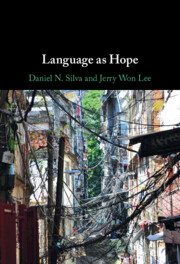
-
- You have access
- Open access
- Cited by 2
-
Cited byCrossref Citations
This Book has been cited by the following publications. This list is generated based on data provided by Crossref.
Go, Christian 2024. Landscaping gender, sexuality, and hope in the 2022 Philippine presidential elections. Linguistic Landscape. An international journal,
Santello, Marco 2024. ‘I Said I’m Young You Know I Can Plan Something Good You Know’: Understanding Language and Migration Through Time. Applied Linguistics,
- Publisher:
- Cambridge University Press
- Online publication date:
- January 2024
- Print publication year:
- 2024
- Online ISBN:
- 9781009306508
- Creative Commons:
-
This content is Open Access and distributed under the terms of the Creative Commons Attribution licence CC-BY-NC-ND 4.0 https://creativecommons.org/creativelicenses


